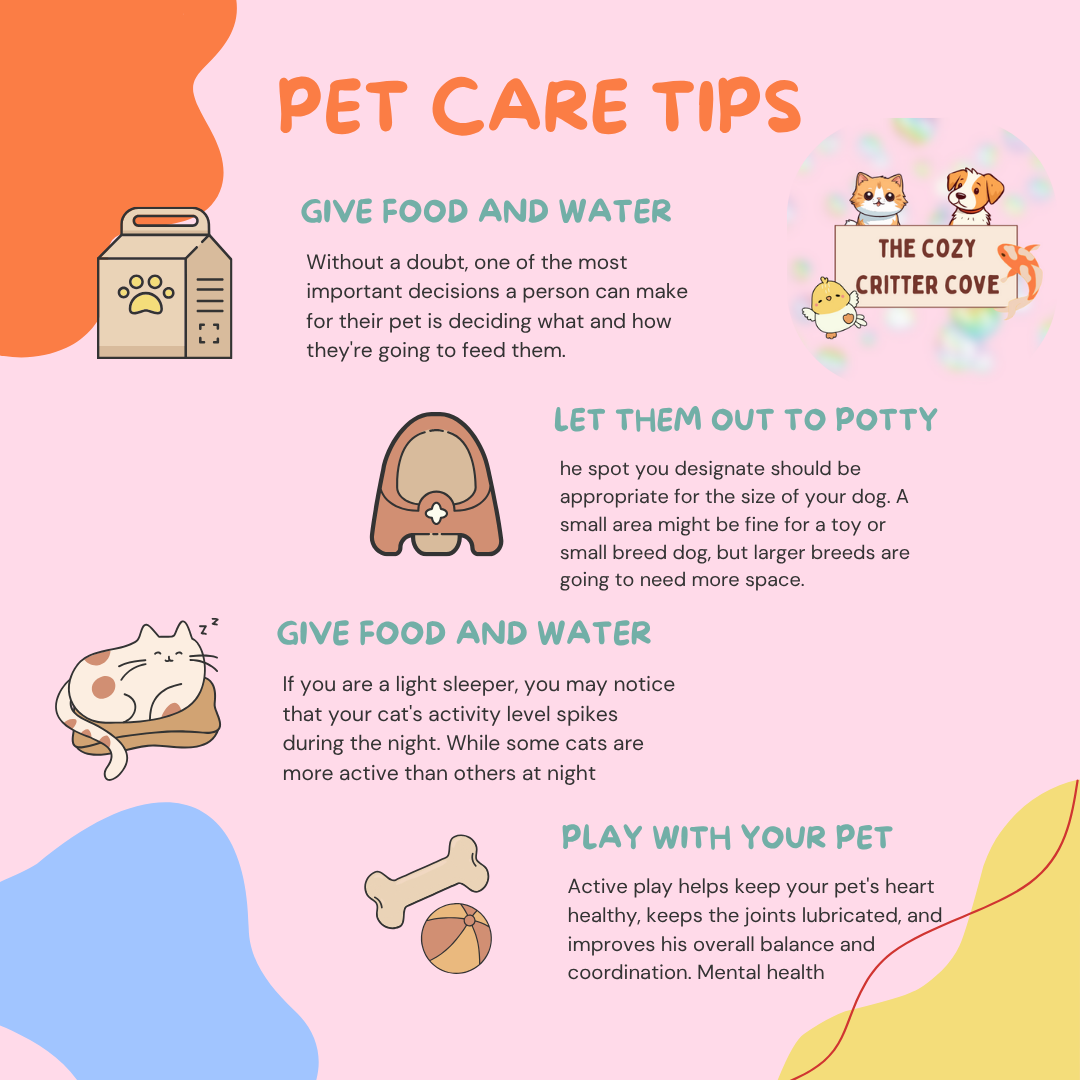
Tips for Pet Care
Share
1. Provide High-Quality Food and Water
-
A nutritionally balanced diet—rich in proteins, fats, carbohydrates, vitamins, minerals, and water—is foundational to a pet’s health and normal body function. Leading pet food brands use scientifically formulated recipes to ensure balance and consistency.ypsivet.comPetMD+2Caring for Pets+2
-
High-quality ingredients (e.g., organ meats, oats, omega‑3 fatty acids, probiotics, prebiotics, calcium) support the immune system, digestive health, coat condition, and long-term wellbeing.EatingWell
-
Always provide access to fresh, clean water, and adhere to feeding routines tailored to your pet’s life stage, breed, and health status.Fetch! Pet Care of Dallas+15Doctor Espo+15bbvsh.com+15
2. Designated Potty Area (Let Them Out to Potty)
-
Dogs benefit from having a consistent, designated potty spot—ideally sized appropriately for the dog’s breed and comfort. Small breeds may be fine with compact areas, while larger dogs require more space.The Spruce Pets
-
Research shows that puppy size and consistent potty-training techniques are more important than breed alone in determining success.Bark Potty+7Veterinary Care at Your Fingertips+7Paw Hacks+7
-
For indoor potty solutions like potty pads, match the pad size to your dog’s breed to reduce accidents and confusion.Bark Potty
3. Offer Food and Water (Reiterated)
-
Besides feeding, note that many pets—especially cats—may display nocturnal activity spikes. Keeping food and water accessible while avoiding overfeeding helps maintain healthy sleep patterns and hydration.The Spruce Pets+1 (myths like giving milk to cats are discouraged)
4. Play with Your Pet
-
Play isn’t just entertainment—it’s essential for physical fitness, mental stimulation, and emotional health in pets. It helps maintain healthy weight, improve cardiovascular fitness, and prevent boredom-driven behaviors.The Spruce Petsoceananimalhospital.com+4ridgelinevetclinic.com+4COAPE+4
-
Play strengthens the bond between you and your pet and promotes overall happiness and well-being.ypsivet.com+15Psychology Today+15oceananimalhospital.com+15
